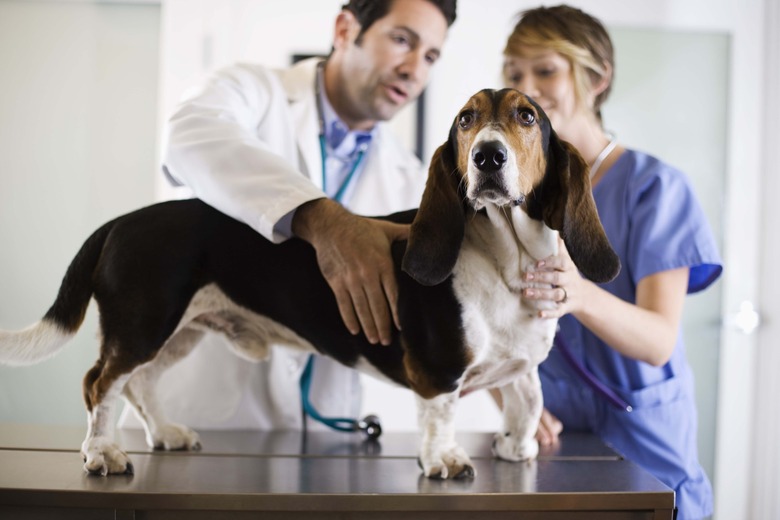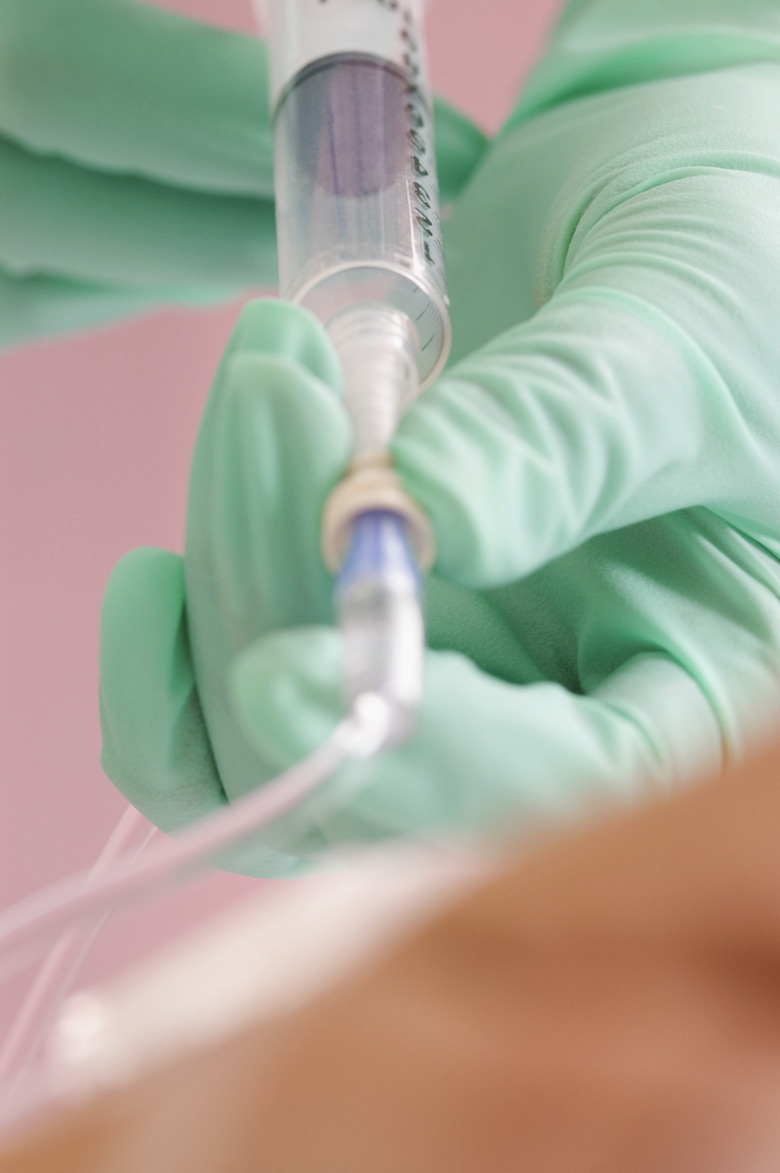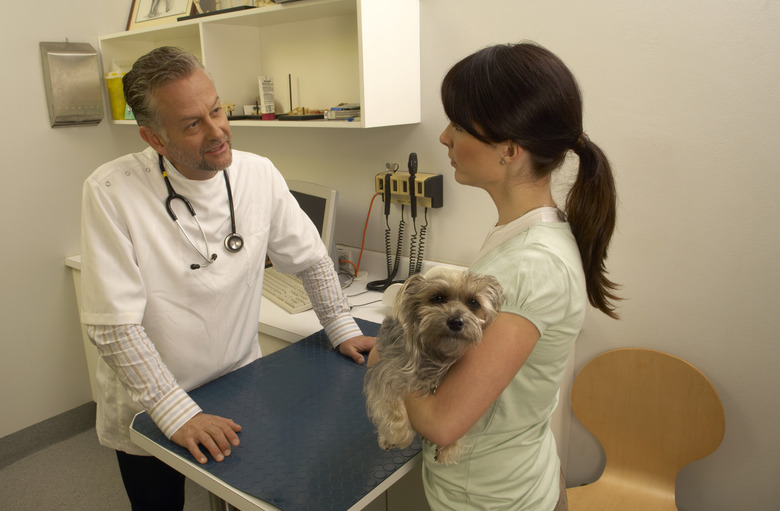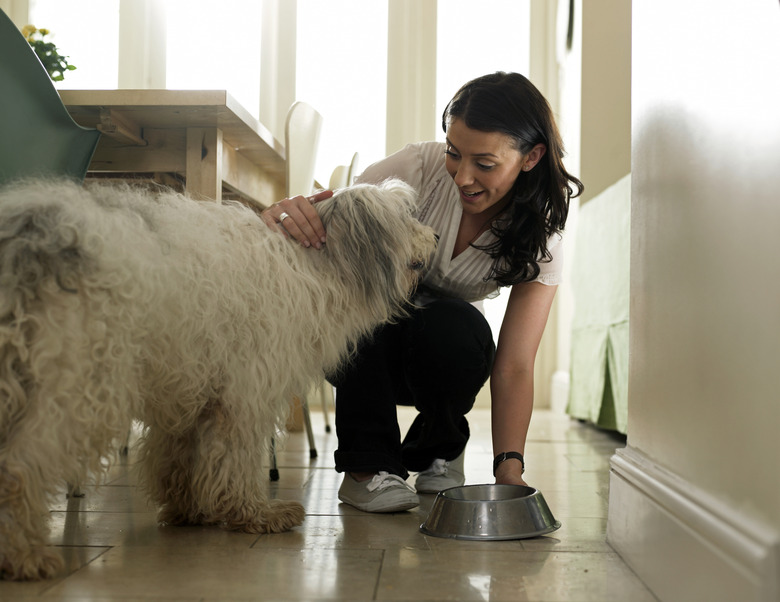How To Reduce BUN & Creatinine Levels In Dogs
High levels of creatinine and BUN (blood urea nitrogen) in dogs is usually a sign of poor health. Most commonly, these levels are associated with the kidneys and can indicate that your dog is experiencing kidney disease or even kidney failure. Reducing the BUN and creatinine levels in your dog may be possible by trying a few different methods.
Step 1
If from a blood test, your veterinarian finds BUN and creatinine levels in your dog that are out of range, he can discuss proper medications that are needed in order to lower the levels.
Step 2
Begin intravenous fluid therapy in your dog. Hydrating your dog with fluids can help to flush out the kidneys. It can also help to replenish him if he has become dehydrated.
Step 3
Administer furosemide or mannitol to your dog if the kidneys aren't able to produce urine. This will also help to flush the kidneys out and lower the creatinine and BUN levels.
Step 4
Feed your dog a diet that is formulated for those with high creatinine and BUN levels. This is typically a high-quality, low-protein and low-phosphorus diet. Eating this type of food may decrease the stress that is put on the kidneys by other foods.
Things Needed
-
Intravenous fluids
-
Furosemide
-
Mannitol
-
Low-protein, low-phosphorus food
Tip
There are many foods available that may help your dog reduce its creatinine and BUN levels. These include Hill's K/D, Purina NF, IVD's Modified diet and Eukanuba's Canine Nutritional Kidney Formula Early Stage. Consult with your veterinarian as to which may be the most beneficial for your dog.
Once the creatinine and BUN levels have lowered, your dog may need to receive fluids on a long-term basis. These can be given subcutaneously, that is, under the skin, and can usually be administered by pet owners. It is beneficial for pets to receive these treatments at home so that the trip to the veterinarian's doesn't cause them stress. These fluids are helpful in continuing to flush out the kidneys, as well as keeping your pet hydrated.
Your dog will likely need to have its creatinine and BUN levels monitored on a regular basis. Sometimes this needs to occur for the course of their lives. This can help to determine if the fluid dose needs to be elevated or if additional treatment is needed.
Always check with your veterinarian before changing your pet's diet, medication, or physical activity routines. This information is not a substitute for a vet's opinion.




